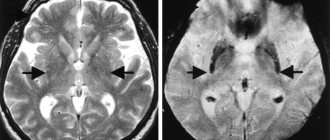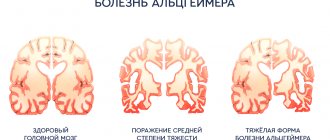What is psychopathy
Psychopathic disorder is a painful variant of human behavior, often a sociopath, expressed in the excessive manifestation of negative character traits.
Most often he stands out:
- Heartlessness, rudeness, rudeness.
- A complete lack of sensitivity to other people's problems and pain.
- Reluctance to consider the opinions of others.
- Antisocial behavior with violent tendencies.
- The feeling of being right in situations where there is clear evidence to the contrary.
In the opposite type of disorder, painfully excessive:
- Anxiety.
- Indecisiveness.
- Closedness.
- Impressionability and self-deprecation.
In psychiatry, this type of behavior is not considered a disease in the literal sense. It is rather a social deviation with painful traits that requires specific correction. At the same time, psychiatrists have to deal with complex cases of this disorder.
Psychotherapy
The main goal of individual and group consultations with a psychologist is to correct the patient’s behavior and thinking and stabilize the emotional status. For this purpose, doctors practice the following techniques:
- psychoanalysis, especially if the cause of unstable psychopathy is associated with psychotrauma, problematic relationships with parents;
- dialectical behavioral therapy, which helps to cope with auto-aggression;
- psychodynamic approach: this is one of the types of psychoanalysis, but in this case the doctor works on correcting the so-called “transferences” - the unconscious transfer of previously experienced traumatic situations and conflicts to certain people in the present.
According to experts, not all people suffering from unstable psychopathy turn to doctors with this problem, attributing the symptoms of the disease to their character or reaction to troubles in the family or at work. We will help you cope with the disease! Don't ignore these personality and behavior changes! For a preliminary consultation and to make an appointment, call us on an anonymous 24-hour phone number 8(969)060-93-93.
COST OF TREATMENT FOR MENTAL DISEASES
The duration of treatment in a hospital is from 14 to 90 days, depending on the severity of the disease.
TREATMENT IN A HOSPITAL.
AMBULATORY TREATMENT
TREATMENT IN A HOSPITAL
Inpatient treatment – accommodation options
| Accommodation in a triple room | 10,000 rub./day |
| Double room | RUB 13,800/day |
| Single room of increased comfort | 16,000 rub./day |
| Treatment in a single VIP ward | 25,000 rub./day |
AMBULATORY TREATMENT
Ambulatory treatment
| psychiatrist | FOR FREE |
| Consultation with a psychiatrist (first appointment) – free of charge during hospitalization | 3,000 rub. |
| Full psychodiagnostics (all tests and procedures) | from 5,000 rub. |
| Appointment with the head physician of the clinic | 4,500 rub. |
| Consultation with a psychiatrist at home | from 4,000 rub. |
FREE CONSULTATION
Drug treatment
The use of medications is necessary to relieve the main symptoms of the disease and associated disorders. When selecting medications, the following factors are taken into account:
- patient's age;
- risk of complications and adverse reactions;
- the likelihood of drug abuse and, accordingly, the formation of drug dependence.
Benzodiazepine and non-benzodiazepine tranquilizers, antidepressants, and hypnotics are indicated. They are prescribed for a short period to await the result of psychotherapy. After completing the main course of drug treatment, general strengthening vitamin complexes and herbal medicines are prescribed for a long period.
Causes of psychopathy
The factors leading to the development of personality deviations are very diverse.
Important psychiatrists include:
- Heredity. The manifestation of psychopathic problems in the family is a prerequisite for their occurrence in close relatives.
- Pathology of pregnancy, complicated childbirth and painful childhood.
- Unfavorable environment of upbringing and life with the experience of psychophysical violence, tyranny, inappropriate behavior of persons (in places of deprivation of liberty), on whom the psychopath was dependent.
- Transference of psychologically traumatic situations: deaths, disasters, accidents, wars and other factors that have a destructive impact on the psyche.
Causes and risk factors for development
The etiology of the disease is unknown. But there are several hypotheses for the occurrence of pathology:
- psychotrauma both in childhood and in adulthood;
- sexual violence;
- long separation, indifference and coldness on the part of parents;
- difficult divorce, protracted conflicts in the family;
- features of education.
Experts do not exclude the role of genetic factors in the development of the disease. According to statistics, when collecting anamnesis, the parents of almost half of the patients had symptoms of emotionally unstable psychopathy.
Types of psychopathy, signs and symptoms, stages
Precursors of a psychopathic state - personality accentuations - occur on average in 10% of the population. It is these individuals who most often become psycho-sociopaths. The percentage of patients suffering from this disorder among all people is quite high. According to statistics, it is within 1-2%. Individuals with aggressive types of the disorder pose a danger to society.
The main signs of this type of psychopathy:
- Extreme degree of egocentrism.
- Cruelty reaching the point of sadism.
- Unceremoniousness and unwillingness to take into account someone's opinion.
- Despotism, a painful desire for power and control of other people.
- A sharp decrease or absence of emotional experiences.
It is this psychotype that is most often associated with crime. Men are more prone to physical forms of expression of psychopathic deviations, while among women psychological ones dominate. The psycho-social treatment of such persons is a particularly responsible matter.
Why therapy is important
When signs of unstable type psychopathy appear in adolescence, parents are faced with the need to solve the problem of the child’s desire for autonomy, on the one hand, and on the other hand, to protect and teach him to cope with the inevitable troubles and conflicts that arise due to frankly risky behavior.
According to statistics, about 15% of patients suffering from this disorder attempt to commit suicide. Due to the tendency to auto-aggression, the likelihood of somatic complications is high. Against the background of impulsive behavior, patients often begin to abuse alcohol, take drugs, and are often injured due to accidents. Sexual promiscuity is also typical, which inevitably carries the risk of sexually transmitted diseases.
In addition, children whose parents suffer from unstable psychopathy have impaired psychological development. They have virtually no interaction with peers, which leads to a lack of communication skills, are less attentive and have virtually no interest in achieving their goals. As they grow older, their risk of developing depression (almost 7 times compared to their peers) and neuroses increases.
Diagnostics
The examination stage requires some time from the doctors of our clinic.
To make an accurate diagnosis, they use:
- A conversation in the form of a dialogue, during which all the nuances of the person being examined are gradually clarified.
- Conversation with relatives.
- Dynamic monitoring of the patient.
A psychologist is involved in the diagnostic process, supplementing medical data with test methods and a special PSL-R questionnaire. He also makes additional recommendations for treatment.
When diagnosing, it is important not only to establish the psychopathic type, but also the stage of the process:
- Compensated.
- Subcompensated.
- Decompensated.
These data must be taken into account when prescribing treatment.
Types of psychopathy
Modern views on the problem have led to the formation of multiple classifications. Let's consider the most applicable one in domestic practice. It is based on the theoretical views and practical developments of Russian scientists, followers of P.B Gannushkin.
In the clinic of psychopathy, the following forms are distinguished:
- Asthenic – with characteristic fearfulness, psychophysical weakness, vegetative disorders. Mimosa type.
- Psychasthenic – manifested by excessive indecision, introspection, anxiety and fear of responsibility.
- Schizoid. The bearer of this psychopathic portrait is closed, self-absorbed, prone to intellectual activities, striving to direct all his talents to self-satisfaction. Knowing his worth, absolutely indifferent to others, capable of self-destruction and unemotional harm to other people.
- Paranoid. The patient is a stuck, stubborn and touchy bearer of overvalued ideas, often of a destructive nature, who pursues their implementation to the end.
- Epileptoid. Has excitability, rage and anger of extreme strength. Doesn't forgive anyone's mistakes and is vengeful. The idea of vengeance can be carried around for decades unnoticed by others.
- Hysterical. Actor type. Obsessed with himself and demands the attention of others. He often lies to please himself and to get what he wants. Prone to taking psychoactive substances.
- Cycloid. A client with a sharply changing emotional background. From depression with depression he falls into the status of hyperthymic. In both cases there is a tendency towards socially pathological behavior.
What are the psychopathological types?
- Hyperthymic type. Sociable, cheerful people, subject to adventurism, with a low ability to morally evaluate actions. They are superficial in their judgments, prone to litigiousness, but are soft in character and compliant. Lower needs are strengthened.
- Depressive type. People with severely low self-esteem are pessimists by nature. They are diligent and scrupulous in their work, usually gloomy and in a sad, depressed mood. They are laconic and show restraint in communications. Increased feelings of guilt and self-deprecation.
- Cycloid type. Individuals with changeable moods. When calm, they are sociable and easily understand other people. They are realists, and also full of vitality. Sometimes they are characterized by short-term bursts of aggression, which are quickly forgotten. They perceive even an insignificant decline in mood extremely difficult.
- Emotive type. Individuals with highly fluctuating moods. They lack strong interests, emotions, behavior, and attitude to the situation. People have a lack of will and increased emotionality. They are capable of strong affection and empathy, and are often simple and cheerful in communication, despite their constant variability and instability.
- Asthenic type. These individuals are characterized by irritability, sensitivity, rapid mental exhaustion and impressionability. They are easily hurt and vulnerable, have a strong sense of inferiority and low self-esteem with a high level of self-esteem. Such people are extremely sensitive to immediate stimuli. Asthenic individuals subtly sense the slightest changes in the behavior of the environment. In an unfamiliar environment they behave distantly and timidly. Outbursts of irritability quickly exhaust them, and attacks of guilt occur. There is a predisposition to hypochondria, as well as phobias.
- Hysterical type. These people have an inherent desire to appear better than they are. There is a tendency to demonstrate oneself. They love to be the center of attention always and everywhere. They are characterized by theatricality, deceit, posing, and a desire to produce an external effect. The emotions demonstrated are very bright and unstable, they are designed to attract attention. Such people are capricious, childish and immature.
- Epileptoid type. Extremely hot-tempered and irritable. They strive for strict ordering of the reality around them. Often outbursts of anger go to extremes. A person of this type can cause serious injury or even kill while in a state of passion. They are selfish, selfish, suspicious, prone to conflict and do not get along well in a team, and always strive for leadership. They may feel guilty after an outburst of aggression, but then the attacks are repeated. Such individuals often appear in forensic cases.
- Paranoid type. Characterized by the desire to create overvalued ideas, which are hypertrophied jealousy, hypochondria, etc. Narrow-minded, such people often see ill-wishers in everyone who does not agree with their attitudes. They have a high opinion of themselves, are selfish, and vindictive. Such individuals are characterized by narrow-mindedness, fixation on ideas, stubbornness, and inflexibility of the psyche. They are prone to reasoning, fruitless reasoning and at the same time have immature thinking. Such people are straightforward, have no sense of humor, stubborn, and are not inclined to compromise. Failures only motivate them to act with renewed vigor.
- Schizoid type. Personalities are closed, seem to be isolated from the outside world. They have original thinking and a contradictory character. They combine both coldness and emotional hypersensitivity. They are prone to symbolism and complex theorizing. Alienated from people. They are perceived by others as original, quirky, eccentric. It is difficult to communicate. They have categorical evaluative statements. Personalities of this type are cautious and do not trust people. In a field of activity that requires a fresh artistic look and unusual ideas, schizoids are capable of achieving considerable heights. Their emotions are complex and multifaceted. They coexist with the willingness to sacrifice oneself for the sake of ideas, and at the same time the inability to understand loved ones. The movements of a schizoid seem angular, mannered, and caricatured. In everyday life such people are inactive and selective in their activities. They often come from personal motives. Their suggestibility is combined with stubbornness and negativism. Schizoids are usually divided into two types: sensitive and cold. The former are distinguished by a subtle perception of reality, vulnerability, suspiciousness, and high sensitivity. Such individuals often take everything personally. They completely withdraw into themselves and live in a fantasy world, where they are most comfortable. They are much less interested in reality. Sensitive schizoids prefer solitude; they are timid, indecisive and shy. Cold people, on the contrary, are cruel, ruthless, and pedantic. Human experiences are alien to them; they act from purely rational motives. Their behavior is also based on a complex system of subjective values.
- Unstable type. Weak-willed, submissive people with a tendency to adapt to the influence of the environment. Beliefs as such are formed from there, and not from subjective views and values. They do not like loneliness and prefer to be in society. Such individuals have a poorly developed will mechanism, they are unstable and easily move from one state to another. They need regular monitoring and behavior correction.
- Psychasthenic type. Such people are in many ways similar to the asthenic type. However, in addition to irritability, sensitivity, and vulnerability, this type is distinguished by a tendency to doubt, indecision, and uncertainty. Mental activity is reduced, so they are prone to introspection and fruitless philosophizing. Their thinking is characterized by the isolation of intellectual activity from reality in favor of abstractions. People of this type constantly doubt making a decision, and when they find a solution, they strive to implement it as soon as possible. Such a person constantly analyzes the actions of the past and has low self-esteem. An important attribute of this type are obsessions, obsessive thoughts, images, ideas, memories. They are also called anxious and suspicious, since anxiety is one of the basic traits of this personality type. It is also worth noting pedantry, scrupulousness, and obsession. They demand the same from others.








